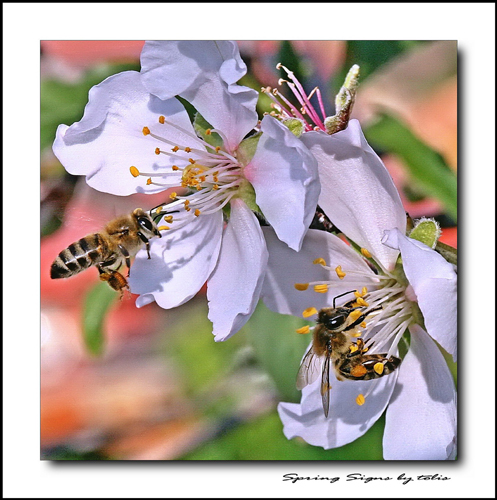Ostara Revisited-The Vernal Equinox
Enjoy this re-post on the history of the Vernal Equinox. Originally posted in 2008, the first day of spring 2012 looks quite different than what I saw outside my window in 2008. This year the vernal equinox brings temperatures in the 70’s and spring blooms bursting all around.
_____________________________________________________________________________________________________________________
Ostara is a neopagan holiday that is celebrated around the time of the Vernal (spring) Equinox when day and night are nearly of equal length.
Ostara comes from the name of an ancient German Goddess, Ostara, after whom the Easter festival may have been named (as speculated by Jacob Grimm in Deutsche Mythologie.) In addition, Grimm’s source, Bede, put forth a thesis that the Anglo-Saxon name for the month of April, Esotur-monath, was named after a Goddess, Eostre.
The Equinox is considered a time of rebirth and rejuvination. It is, therefore, not surprising that Easter also occurs around the time of the Equinox. Several “traditions” associated with Easter find their origins in pagan rituals, such as eggs which are a symbol of fertility; coloring eggs and hunting for eggs (decorated eggs were offered as gifts and to bring blessings of prosperity and abundance) and the Easter bunny and Easter chicks.
Chicks and rabbits are very fertile animals. The rabbit was an animal sacred to the Goddess Eastre (Oestre). Eastre is the Goddess of spring and presides over the realm of conception and birth (animal and human), pollination, flowering, and ripening fruits of the plant kingdom. By honoring the rabbit in spring, by eating candy in the shape of rabbits or chicks, it was believed that we’d take on their characteristics and enhance our own fertility, growth and vitality.
The bluebirds, a sure sign of spring, made an appearance in our back yard a few weeks ago.


Unfortunately the first day of spring in Massachusetts is rather dreary. I found the following images on Flickr to remind me of the warmer weather and flowers soon to come.



Happy Spring!
